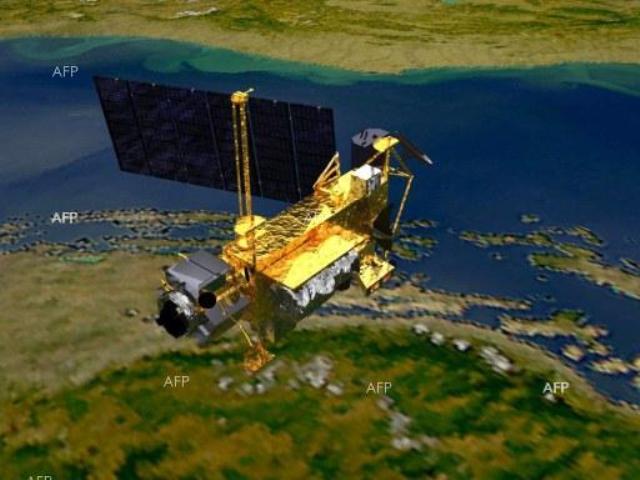
MOSCOW — A Russian probe designed to travel to a moon of Mars but stuck in Earth orbit will come crashing down within hours, the Russian space agency said Sunday.
Roscosmos said the unmanned Phobos-Ground willl crash between 16:41 and 21:05 GMT (11:41 am and 4:05 pm EST). It could crash anywhere along the route of its next few orbits, which would include Europe, southeast Asia, Australia and South America. The US, Canada and much of Russia are outside the risk zone.
A large part of each orbit is over water, and scientists have estimated that the risks of the probe crashing into any populated areas are minimal.
At 13.5 metric tons (14.9 tons), the Phobos-Ground is one of the heaviest pieces of space junk ever to fall on Earth, and one of the most toxic too. The bulk of its weight is a load of 11 metric tons (12 tons) of highly toxic rocket fuel intended for the long journey to the Martian moon of Phobos. It has been left unused as the probe got stuck in orbit around Earth shortly after its 9 November launch.
Roscosmos predicts that only between 20 and 30 fragments of the Phobos probe with a total weight of up to 200 kilograms (440 pounds) will survive the re-entry and plummet to Earth. It said all of the fuel will burn up entirely in the atmosphere.
The probe's fuel tanks are made of aluminum alloy and should melt early on re-entry, backing up the official assurances.
The Phobos-Ground also contains a tiny quantity of the radioactive metal Cobalt-57 in one of its instruments, but Roscosmos said it poses no threat of radioactive contamination.
The US$170 million Phobos-Ground was Russia's most expensive and the most ambitious space mission since Soviet times. The spacecraft was intended to land on the crater-dented, potato-shaped Martian moon, collect soil samples and fly them back to Earth, giving scientists precious materials that could shed more light on the genesis of the solar system.
